
Harry Baker
Harry is a U.K.-based staff writer at Live Science. He studied Marine Biology at the University of Exeter (Penryn campus) and after graduating started his own blog site "Marine Madness," which he continues to run with other ocean enthusiasts. He is also interested in evolution, climate change, robots, space exploration, environmental conservation and anything that's been fossilized. When not at work he can be found watching sci-fi films, playing old Pokemon games or running (probably slower than he'd like).
Latest articles by Harry Baker
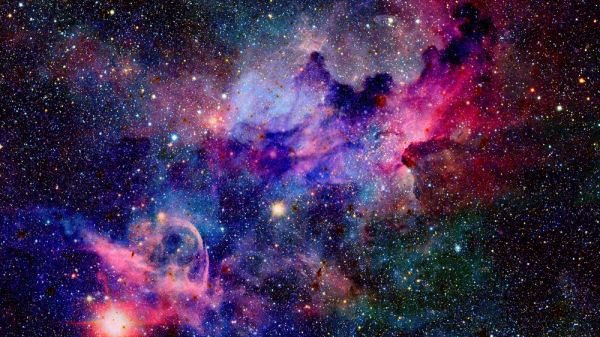
What color is the universe?
By Harry Baker last updated
Scientists have figured out the average color of the universe by recording visible light from more than 200,000 galaxies.

Striking satellite photo captures Mount Vesuvius peering through a hole in the clouds
By Harry Baker published
A satellite image captured by Landsat 8 shows Mount Vesuvius "peering" through an eerily circular hole in the clouds.

Astronaut snaps spectacular shot of crescent moon glowing over stunning sunset
By Harry Baker published
NASA's Earth Observatory has released a photo of a crescent moon above an orbital sunset taken by an astronaut on the International Space Station.

Rare wispy ice formations streak across the sea near Antarctica in beautiful satellite images
By Harry Baker published
Recent satellite images captured by Landsat 8 show a rare windswept sea ice formation over water in Antarctica.
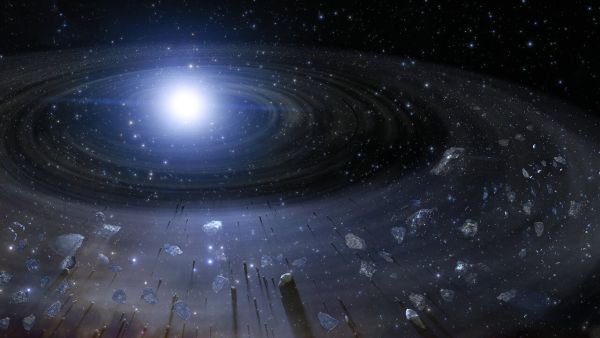
Never-before-seen rocks found in these exoplanet graveyards
By Harry Baker published
Researchers studying the atmospheres of white dwarfs have discovered previously unknown rock types which made up the exoplanets that once surrounded the stellar remnants.

'False fossils' littered across Mars may complicate the search for life on Red Planet
By Harry Baker published
Researchers warn that there are dozens of potential false biosignatures on Mars that could hinder the search for alien life.

Diamond hauled from deep inside Earth holds never-before-seen mineral
By Harry Baker published
Researchers have discovered a new mineral from deep within Earth's mantle; it was trapped inside a diamond and brought to the surface.

Earth tipped on its side (and back again) in 'cosmic yo-yo' 84 million years ago
By Harry Baker published
A new study has confirmed a longstanding theory that Earth's crust tilted to the side, and eventually back again, around 84 million years ago.
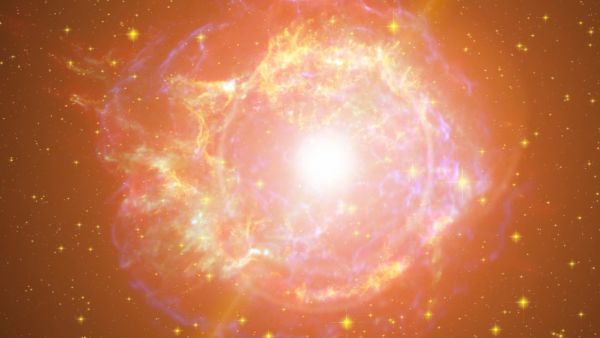
Weird stellar remnant may be from one of the first stars in the universe
By Harry Baker published
Astronomers recently identified an unusual star that most likely formed from the hypernova remains of one of the universe's first stars.

Stunning supernova remnant looks like Pac-Man gulping down stars
By Harry Baker published
NASA has released a picture of a Pac-Man-shaped supernova remnant in the Large Magellanic Cloud galaxy that was recently captured by the Hubble telescope.
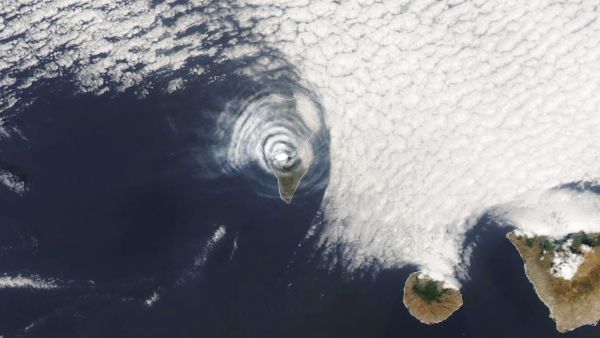
Striking bull's-eye-shaped clouds form above erupting La Palma volcano
By Harry Baker published
Satellite images released by NASA's Earth Observatory show concentric rings of clouds forming above the erupting volcano on La Palma in the Canary Islands.

World's largest Martian meteorite goes on display
By Harry Baker published
The largest piece of Martian rock on Earth, weighing around 32 pounds, has gone on display for the first time, at a museum in Maine.
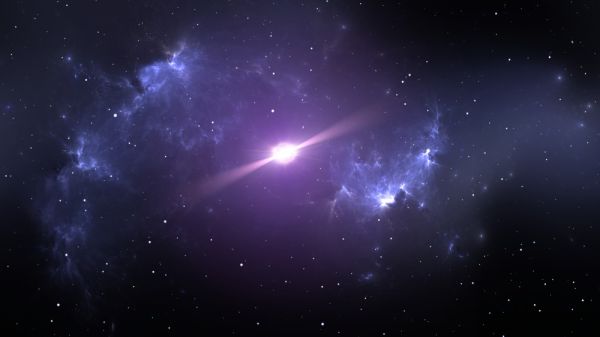
Neutron star 'mountains' may be blocking our view of mysterious gravitational waves
By Harry Baker published
Scientists have used computer models to predict the size of minuscule deformations, or mountains, on the surfaces of neutron stars, which are responsible for causing gravitational waves as they spin.
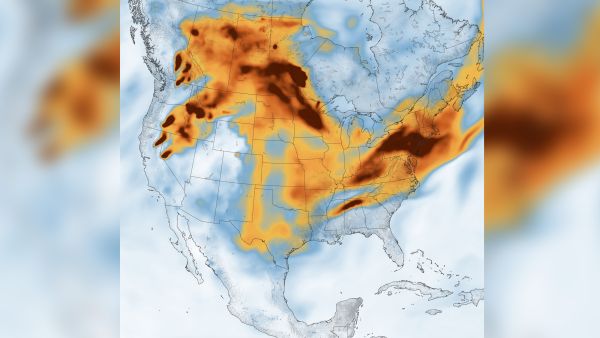
Wildfire smoke spreads across US in striking images from space
By Harry Baker published
NASA has released striking satellite images of wildfire smoke clouds covering vast swaths of the U.S., from the West Coast all the way to the Atlantic Ocean.

Oldest spiral galaxy in the universe captured in fuzzy photo
By Harry Baker published
Astronomers have identified the universe's oldest spiral galaxy from a blurry image captured by the ALMA observatory.

8 extremely rare 'millisecond pulsars' discovered inside globular clusters
By Harry Baker published
Scientists using South Africa's MeerKAT radio telescope have detected 8 new millisecond pulsars in the hearts of globular clusters.
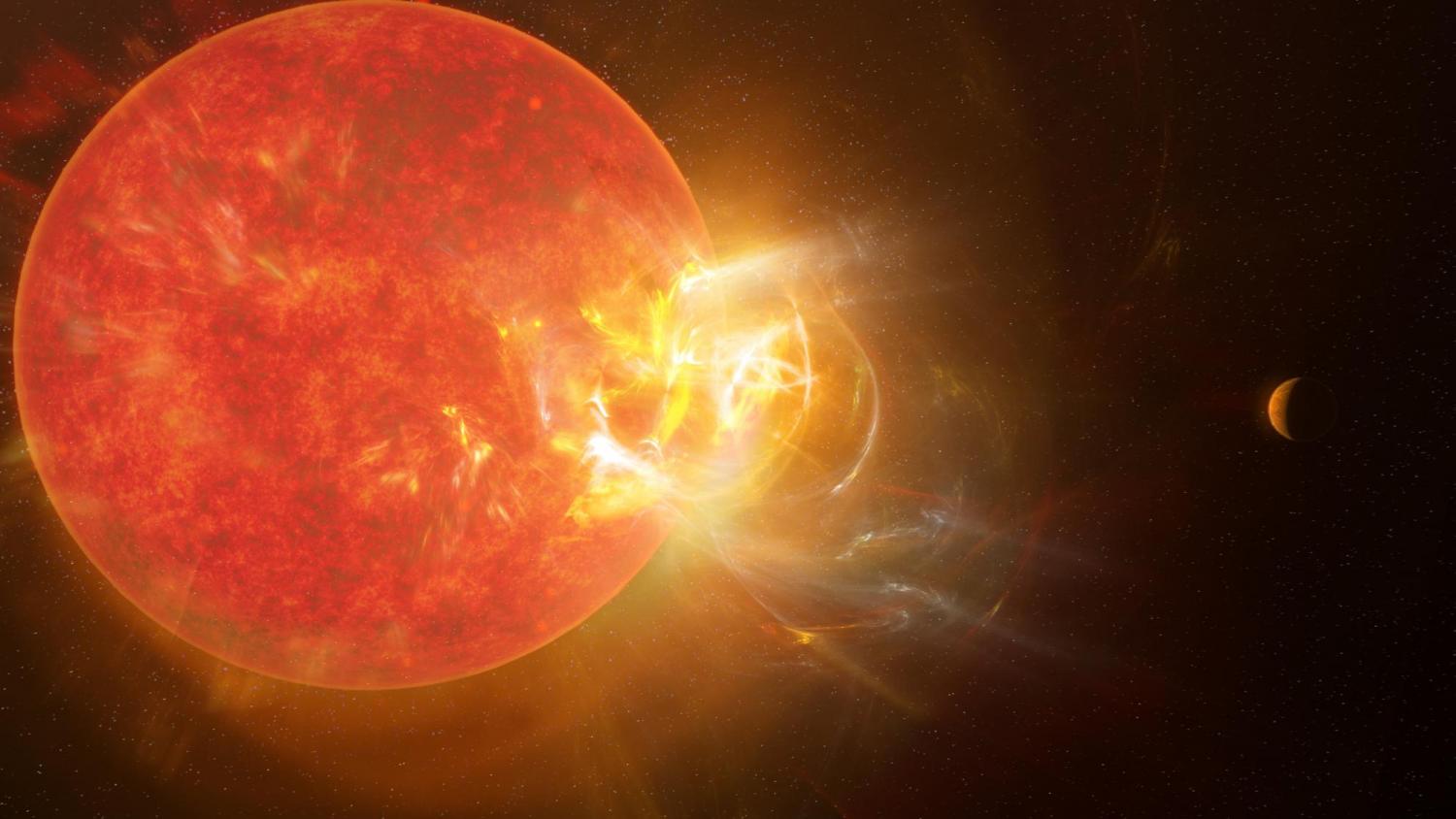
Proxima Centauri shoots out humongous flare, with big implications for alien life
By Harry Baker published
Scientists have detected the largest stellar flare ever recorded from Proxima Centauri. The finding changes what we know about stellar flares and the potential for alien life around red dwarfs.

How long would it take to walk around the moon?
By Harry Baker published
Walking around the moon could be faster than we originally thought, but actually doing it would require some serious planning.

Rare daytime fireball meteor creates massive sonic boom over UK
By Harry Baker published
A rare fireball meteor bright enough to be seen during the day triggered a massive sonic boom over parts of the UK and France.

World's oldest meteor crater isn't what it seems
By Harry Baker published
The world's oldest meteor impact crater is not a crater at all, say scientists of a new study suggesting natural forces put the giant indent into Earth's surface. But the jury is still out.

Scientists want to store DNA of 6.7 million species on the moon, just in case
By Harry Baker published
Scientists have unveiled plans for a lunar ark on the moon containing genetic information on 6.7 million species to ensure their preservation against existential threats.
Get the Space.com Newsletter
Breaking space news, the latest updates on rocket launches, skywatching events and more!


